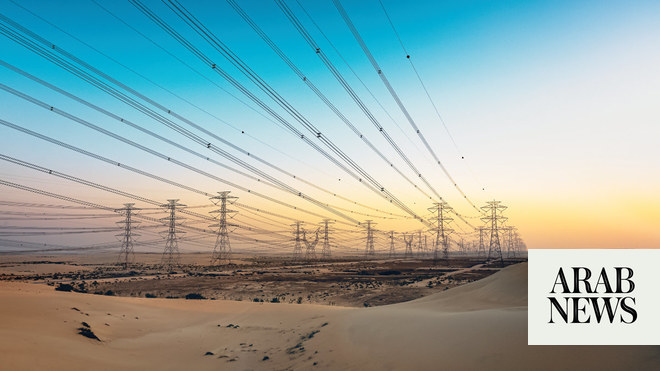
Change in the Middle East not happening "quickly enough" for people on the ground, says Goldman Sachs partner
GCC states will need to maintain relevance as "economic actors" through continuous growth, says Mubadala Investment Deputy Group CEO
DUBAI: Diversifying economies and tackling common global issues such as climate change, unemployment and geopolitical conflicts will be key to the Middle East’s transition to a more sustainable future, a leading forum in Abu Dhabi heard on Tuesday.
The opening session of the 2020 Middle East and Africa Summit, convened by the California-based Milken Institute, featured a panoply of speakers including corporate executives, investors, government officials and decision-makers.
Offering “regional insights into tomorrow’s global opportunities,” they discussed the requirements for a more sustainable and inclusive economies in the Middle East and examined the impact of US-China trade war on the rest of the world.
The two-day forum gathered more than 1,000 business executives, investors, government officials and philanthropists to discuss topics such as trade, capital markets, financial inclusion, food security, job creation and gender parity.
Waleed Al-Muhairi, deputy group CEO of Abu Dhabi’s Mubadala Investment Company, outlined the GCC bloc’s economic diversification with particular reference to the UAE’s efforts to reduce its dependency on oil.
He pointed out that the country’s “hydrocarbon wealth” has resulted in “world-class infrastructure and great education and health care” with effective leadership.
“That quest for economic diversification and the bridge that hydrocarbons have given us is something we will continue to look at,” he said. “It will be important for us in the next 20 to 40 years.”
Al-Muhairi added that GCC states will need to maintain relevance as an “economic actors” through continuous growth and smart investments.
“To do that, you have to make sure your economy is innovation-led, and that you are not just a consumer of technology but eventually a developer and exporter,” he said.
Al-Muhairi said GCC countries must also continue to look for ways to best address some of the region’s biggest issues, such as the high rate of unemployment among young people.
“It is important for us to think about how we can absorb the young people of today to make sure they have productive ways to contribute to the wellbeing of society.”
Drawing on her background as a partner at Goldman Sachs, Dina Powell McCormick said environmental, social and governance issues — the three central factors in measuring the sustainability and societal impact of an investment — are on “top of the mind” of most investors today.
“We are sitting in a region of the world where 75 percent of the population is under the age of 30 and yet 50 percent of the productivity is under-utilized,” she said.
According to her, as large pools of capital — both private and public — make more investments and change the dynamics around new technologies and policy, “tackling suitability issues” and creating “inclusive human growth” remain the two main areas of focus.
McCormick said high levels of public frustration are evident in the protests happening in Arab states, which indicate that changes are “not happening quickly enough.”
As for sustainability, she said: “We are all very eager to talk about clean energy and new technologies, but are not honest about just how carbon-dependent we are.”
McCormick said slow economic progress in parts of the Middle East is primarily felt by local communities, adding that more sovereign wealth funds, companies in the private sector and business leaders are starting to take the initiative in addressing this issue and work with governments.
In conclusion, she cautioned that repeatedly holding discussions on topics such as women’s empowerment and youth unemployment without initiating change will lead to a “dangerous” future.
For his part, Raymond Dalio, co-chairman and co-chief investment officer at Bridgewater Associates, spoke on a number of possible global challenges.
On shifts in world order, he said: “You have the emergence of a great power (China) to challenge an existing world power (the US).”











